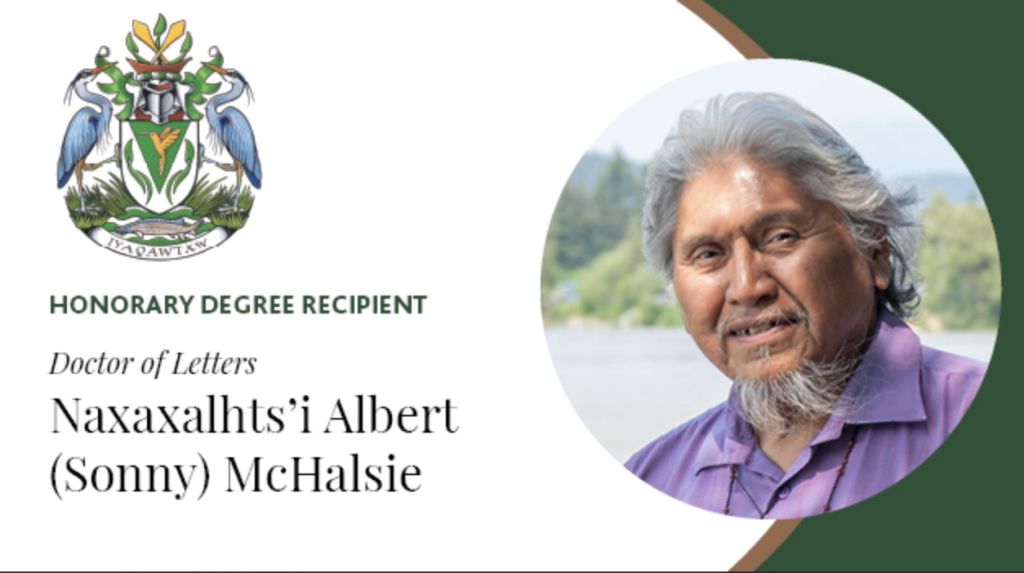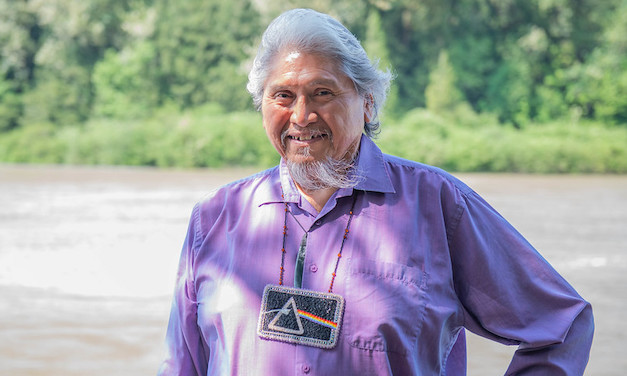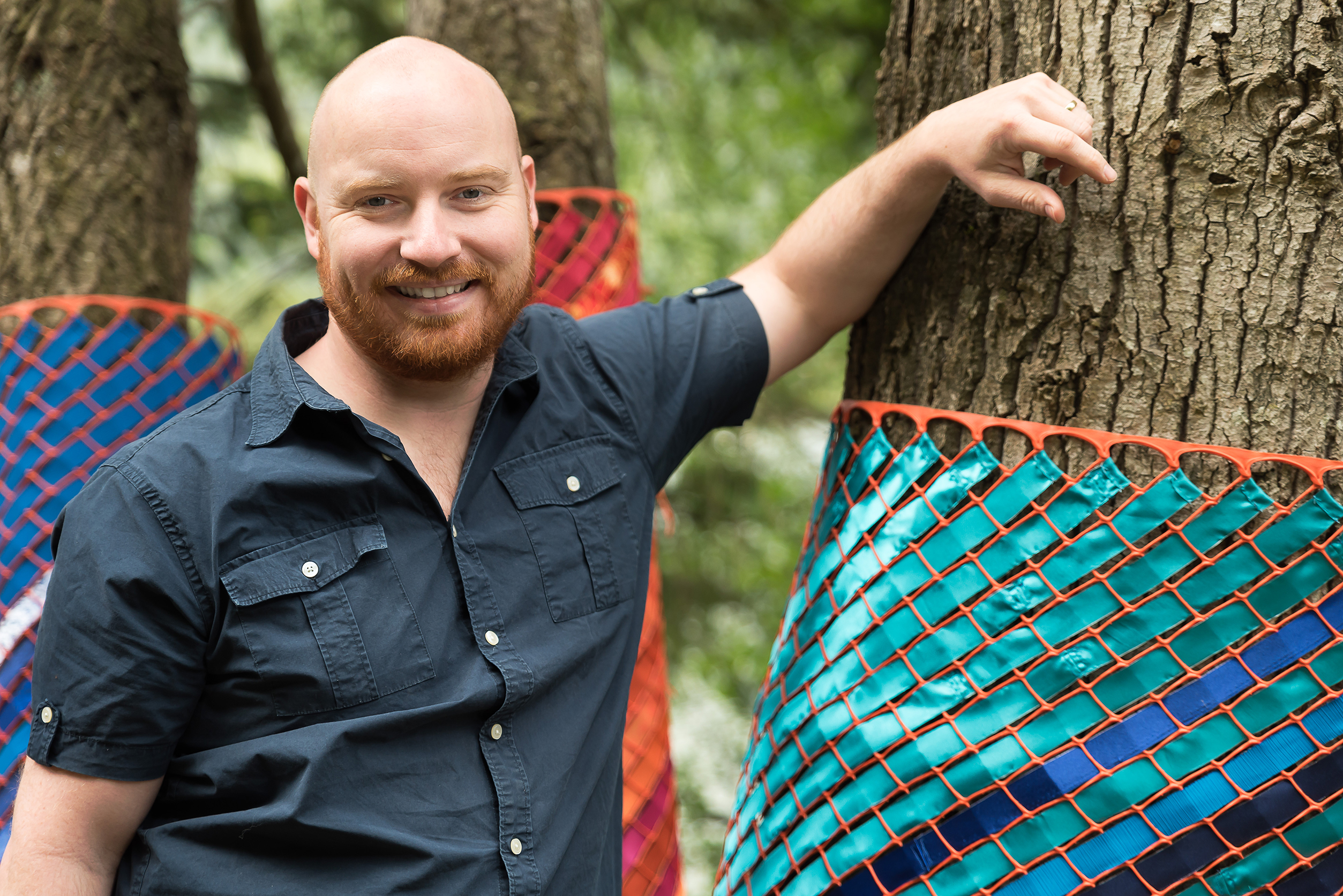Honorary degree 2023: Naxaxalhts’i ‘Sonny’ McHalsie shares Stó:lō culture and history with generosity
 If things had turned out a little differently, Naxaxalhts’i Albert ‘Sonny’ McHalsie might have been one of B.C.’s top mechanics rather than a highly valued interpreter of Stó:lō people’s culture and traditions. And much vital knowledge about the culture and history of Indigenous Coast Salish history would have been lost.
If things had turned out a little differently, Naxaxalhts’i Albert ‘Sonny’ McHalsie might have been one of B.C.’s top mechanics rather than a highly valued interpreter of Stó:lō people’s culture and traditions. And much vital knowledge about the culture and history of Indigenous Coast Salish history would have been lost.
Because he chose a different path, and for almost four decades has played a key role in bridging Indigenous and western approaches to preserving stories and culture, much has been saved.
In recognition of his efforts and contributions, Naxaxalhts’i received an honorary Doctor of Letters degree from the University of the Fraser Valley on June 14, 2023.
For Naxaxalhts’i, much of his work is focused on promoting cultural understanding to support reconciliation.
“For reconciliation to happen, it’s important for non-Stó:lō people to understand that we have a deep rich culture and history on this land, rooted in our teachings, which are passed on through our stories. It is our unique relationship to the land of Stó:lō Temexw that sets us apart,” he says.
He notes that he and many other Indigenous people live in two different paradigms, and encourages non-Indigenous people to recognize the Stó:lō world view.
“In order to co-exist, we ask that non-Indigenous people don’t try to take elements from their belief system to explain or change ours, but rather accept our differences. If they had done that when they first got here, things would have been a lot easier for us.”
Of both Nla’kapmux and Stó:lō heritage, Naxaxalhts’i was always a natural storyteller, a trait inherited from his grandfather Meshkt’ (Antoine McHalsie), who travelled throughout Nla’kapmux territory and beyond sharing stories in the oral tradition.
“I heard from my second cousin Annie York that he would travel between Spences Bridge and Merritt, spending a couple of days in each village, staying with local families and sharing stories,” Naxaxalhts’i recalls. “I’ve heard from others that he went all the way through the Okanagan and Lillooet.”
Naxaxalhts’i has taken that talent for sharing stories, plus an incredible capacity for listening to, absorbing, and interpreting the stories of Stó:lō Elders, and used it to collect and share a huge body of Indigenous knowledge through his role as a historian and cultural advisor work with the Stó:lō Research and Resource Management Centre.
He was finishing up in his automotive mechanics program, and near the top of his class, in the late 1970s and was planning to pursue that path. But he kept thinking back on his experience a few summers previous, volunteering and then working on digs in the Hope, BC, area with archeologists from the University of Victoria.
“I thought that was so cool. After finishing up the dig, I attempted to get an auto mechanic apprenticeship, but my heart wasn’t in it.”
Luckily for him, he was hired by the Chawathil First Nation as an economic development research assistant, which resulted in both agricultural and aquacultural ventures. He worked as the foreman for both a fish famr and the Chawathil Farm Co-op.
“That exposed me to working formally with various First Nations organizations, such as the Union of B.C. Indian Chiefs and the Western Indian Agricultural Corporation.”
One thing led to another, and in 1985 he was hired by what was then the Stó:lō Tribal Council as a research assistant. His position titles have changed over the decades, but his role as a preserver and interpreter of history and culture has remained constant. His current employer is the Stó:lō Research and Resource Management Centre.
Naxaxalhts’i is not an academic in the traditional Western sense, but by sharing his knowledge with researchers, scholars, and students over the past four decades he has ensured that a wealth of knowledge about the Stó:lō people and their culture and traditions is preserved, shared, and interpreted for current and future generations. He has a lengthy history of association with UFV, and also cooperates with other institutions through his role as an instructor and mentor for an ethnohistory field school.
Perhaps more important even than his academic contributions is Naxaxalhts’i’s work as an historian and teacher within his own Stó:lō cultural tradition. He is one of the most distinguished interpreters of the Coast Salish world of his generation and serves as a bridge between Elders (many of whom are no longer living) and current scholars and interested people of both Stó:lō and non- Stó:lō descent.
Naxaxalhts’i, more commonly called “Sonny” by his many friends is an active adjunct member of UFV’s History department, regularly leads faculty and staff on Stó:lō Place Name Tours, acts often as an Elder and Witness for university events and gatherings, has served as a member of the UFV Indigenization Committee, and has been a guest speaker for several events in Xwelítem Siyáya: Allyship and Reconciliation Building, a collaboration between UFV and a group of Stó:lō agencies to offer an educational program to help participants enhance their capacity for reconciliation building.
While he has been generous sharing knowledge that the Elders have been willing to have the non- Stó:lō people, he also credits key Xwelítem (hungry people, a word used to describe settlers) with helping to preserve Stó:lō history. And he has worked alongside the archeologists, linguists, and historians who helped with this work.
“Experts who can work with Indigenous people in a respectful manner are very important,” he says, citing linguist Brent Galloway, who helped to preserve the Halq’eméylem language and historian Keith Carlson, who uncovered historical facts to support oral histories of events such as the kidnapping of young Stó:lō boys by European settlers.
Naxaxalhts’I is proud of his work, and of maintaining 38 alcohol-free years since starting his job with the Stó:lō people.
“This has been a great job for me, so I decided not to mess it up. I quit drinking the day before I started,” he recalls.
As for receiving an honorary degree from his local university?
“It’s an awesome honour to be recognized so close to home, by a university situated in Stó:lō Temexw, and one that I have done so much work with over the years.”





